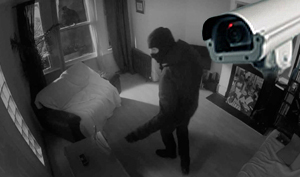Can a CCTV system help you with your home security?
CCTV systems are used by various businesses to protect their assets and premises from burglars. According to a report from the British Security Industry Association (BSIA), there are over 6 million surveillance cameras in the United Kingdom. These systems are one of the easiest and most cost-effective security solutions. You can also use a CCTV installer monitor to keep an eye on the activities around your house. This blog post will give you an insight into the pros and cons of installing CCTV cameras outside your house.
Cost-benefit analysis
There are several types of CCTV systems in the market, each with its own operating characteristics. It is necessary to compare the costs and benefits of a surveillance system before installing it. Initial costs depend largely on the size of the house and the type of security solutions needed. For instance, your house may need a more complex system than a warehouse monitoring system. You can purchase domestic CCTV for as little as £50, so it’s potentially a cost-effective way to improve security at your home. You can spend more on a top-of-the-range system and this will help you in identifying a criminal in case a burglary takes place.
You can use a wire or wireless system depending on your budget. Although wired surveillance cameras are cheap, wireless ones will be convenient as you can access them from your smartphone anywhere, anytime. You can store the footage on a hard drive or a separate digital recorder to store the recorded footage. Along with the installation cost, the next cost associated with security systems is maintenance and repair. Maintenance cost may include software upgrades, camera cleaning and hardware replacement due to normal wear and tear. These costs are very minimal to initial investment costs.

Will it stop crime?
The psychological effect of the presence of surveillance serves as the greatest step in crime reduction. A CCTV system reminds the residents of their security measures that they would otherwise forget easily. Psychologically, people residing in protected areas take more measures to protect their assets. Thus, the surveillance system prevents crime by identifying potential victims. The burglars can also experience the same psychological effect and they won’t commit a crime in secured places. A number of robberies took place on moving trains in Brazil before the trains started using CCTV because the criminals felt no pressure in executing the illegal activities. These cases almost disappeared after the installation of CCTVs on the trains. The criminals fear to carry out illegal activities as the authorities can easily catch them. Surveillance cameras thus affect the criminal psychologically to stop their activities.
Why your CCTV installer monitor could be breaking the law
The home CCTV systems don’t come under the jurisdiction of the Data Protection Act. But if the system is used to monitor other activities than its intended purpose, you may have a case for taking further action under totally different laws. For instance, if your camera is directly pointed towards another person’s property, they have the right to file a case against you under the Human Rights Act.
Private house owners filming outside their premises are no longer covered by an exemption to the Act. Hence, filming your neighbour’s house or road could get you into serious trouble. “Private property owners must operate within the law, for instance by ensuring that their usage and siting of the camera is well justified, that their recordings are not excessive, that it is kept only until it is required and then it is kept secure,” said an ICO spokesman.
You can install the system on your own, but it’s best to ask the ICO for advice first. If you break the laws, you could get involved in proceedings which could end in disdain of court charge.
What about privacy?
“It is still unclear what the implications might be for the citizens of the UK,” says Kate McMullan, an associate at Hogan Lovells. “You have to be careful about the recorded footage. You must inform your neighbours and other people that you are using CCTV, for example by putting a signboard.”
The ICO says that you should still consider whether a CCTV system is wholly necessary, and says you should consider whether other options, such as extra lighting, locks or alarms could solve your security issues. Ensure that your system is not recording audio and the law restricts users to publish the video footage online. Keep in mind to follow all the rules before installing a CCTV system and don’t film outside your premises.
